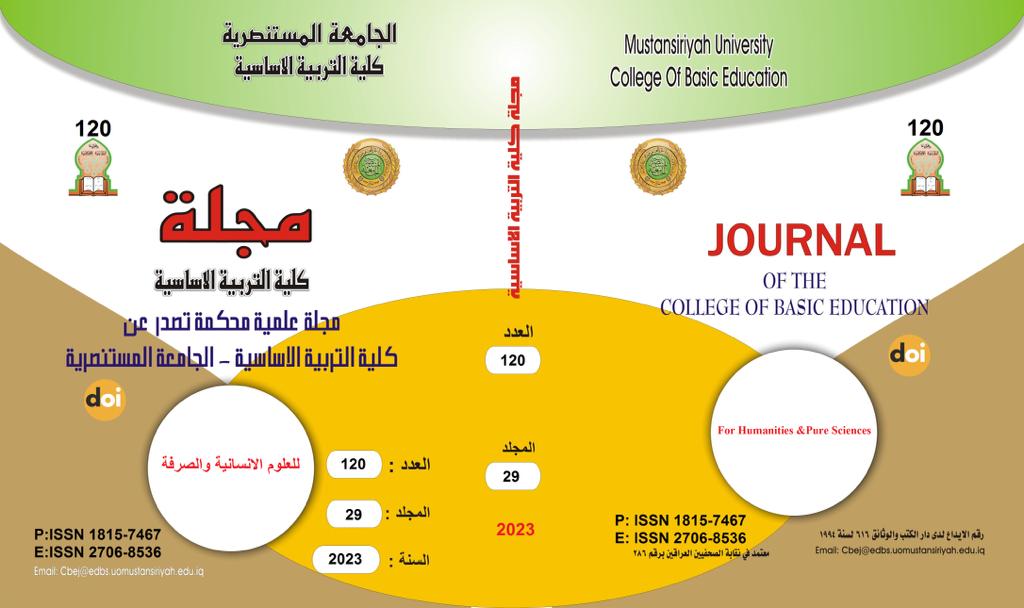The effect of problem-centered education strategy in teaching systemic thinking skills in practical subject among, students of the College of Basic Education
Main Article Content
Abstract
The current study aims to identify (the effect of problem-centered education strategy in teaching systemic thinking skills in practical subject among, students of the College of Basic Education). A group that included (36) students, who were taught using the problem-centered education strategy, and Division (C) a control group that included (37) students, who were taught the same content in the usual way. The students of the College of Basic Education, the research sample in the two groups, were rewarded with variables (intelligence test, previous information, systemic thinking). The researcher prepared a systemic thinking skills test consisting of a number of paragraphs amounting to (16) paragraphs. Richardson and reached (0.84). When applying the t-test for two independent samples, the result was that there were statistically significant differences at the level of significance (0.05) between the mean scores of the students of the two groups in the systematic thinking skills test, in favor of the experimental group, which taught its students with the problem-centered education strategy.
1- The study recommended the need to use the problem-centered education strategy in teaching because of its ability to teach students of the College of Basic Education how they can reach knowledge by themselves. It is preferable to develop thinking of all kinds among students, especially systemic thinking through evaluation questions, which causes the learner to think.
2 - The need to include modern teaching strategies and models within the vocabulary of teaching methods in educational colleges, including the hot chair strategy and the problem-centered learning strategy
Article Details

This work is licensed under a Creative Commons Attribution-ShareAlike 4.0 International License.
